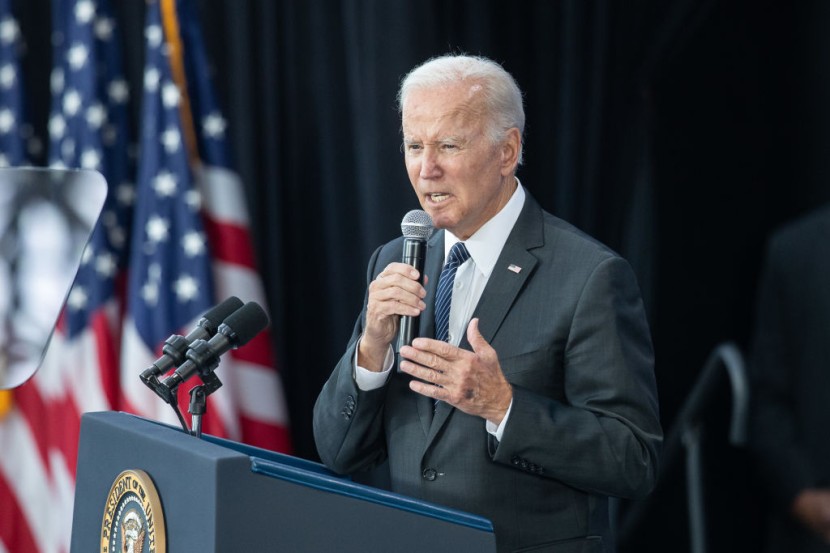
The White House is working to negotiate with union leaders and rail companies on Monday as protesters are calling for more than just money, demanding better working conditions and safety regulations.
United States President Joe Biden is pressing for a deal to avert a national railroad strike that is days away from shutting down much of the country's transportation infrastructure. Biden administration officials have also started to prepare for a potential shutdown, warning a strike could seriously damage the U.S. economy, as well as hurt Democrats in the upcoming midterm elections.
National Railroad Strike
The president's calls come after unsuccessful emergency meetings at the White House last week, which have been led by the White House National Economic Council. They included Labor Secretary Marty Walsh, and Transportation Secretary Pete Buttigieg was also invited in trying to broker the impasse.
The stalemate situation pits two of Biden's top priorities against each other, to defend union workers and the nation's transportation infrastructure. The shutdown of the latter would disrupt commuter and passenger services nationwide, as per the Washington Post.
The Biden administration has little time to act as the nationwide rail shutdown is set to go into effect after midnight on Friday, and labor and management have been at an impasse over difficult issues such as sick time and penalties for missing work. The strike would be the first recorded in the last three decades.
Read Also: Donald Trump Refused To Leave White House After 2020 Election Loss to Joe Biden, Claims New Book
Amtrak has already started to warn passengers, noting that interruptions will begin on Tuesday on its national network. The passenger railroad added that it is pulling trains on three long-distance routes to "avoid possible passenger disruptions while on route."
According to Politico, a person familiar with the conversations said, "There is this narrative being developed that a work stoppage is inevitable and unions are chomping at the bit. My view is that a strike is unlikely and that the likeliest scenarios are, one, that they reach an 11th hour or 11th hour and 59-minute deal. The second-likeliest scenario is they extend the cooling off period so that they can have more time to cross all the t's and dot all the i's."
Unions Call for Better Working Conditions
While the majority of the 13 unions involved in negotiations have either reached a tentative agreement with the railroad companies or close to one, the two unions representing engineers and conductors have rejected the compromise deal proposed by a presidentially-appointed board of arbitrators. This is because it does not include a change to work rules, like new attendance policies that workers have found onerous.
The situation comes as there has been a surge in union activism, including strikes and organizing efforts, in the last year, being driven primarily by factors far beyond pay rates and benefits packages. If money was the only issue, the U.S. probably would not be facing the risk of the railroad strike.
The unions said that they were rejecting the work rules, staffing, and scheduling proposals that require them to be on call, and ready to report to work, seven days a week for much of the year, CNN reported.
Related Article:
© 2026 HNGN, All rights reserved. Do not reproduce without permission.








